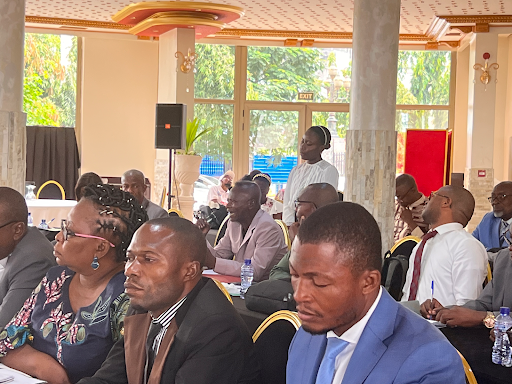Minerva Initiative examines relationship between aid and conflict
Foreign aid dollars promote peace and security – or do they? This is the fundamental tenet underlying huge amounts of development financing, driven by studies showing that higher household wealth can mean reduced violence or that targeted spending may undermine rebel groups who win allegiance by providing social services.
However, there is also a growing body of evidence to the contrary: in some cases, it seems, introducing aid money into a violent context can increase levels of violence as players scramble to divert or control those dollars. So which is it – and what does that mean for how governments should spend, if they want to counter insurgencies and rebel groups?
AidData has been selected by the U.S. Department of Defense’s Minerva Initiative as part of a consortium seeking to answer these questions by exploring the relationship between foreign assistance and intrastate conflict. Led by the University of Maryland’s Center for International Development and Conflict Management, the UMD team includes experts from the Graduate Institute of International and Development Studies (Switzerland), and the Institute of Development Studies (UK).
The $2.5 million dollar grant will allow academic researchers to examine whether development aid makes countries more or less resistant to violent conflict within their own borders. If there is a link between development funding and resilience in the face of potential conflict, researchers want to know where, when, and why this occurs, giving policy makers a better sense of how to allocate resources to promote stability.
In collaboration with these research teams, Development Gateway will build a prototype of a dashboard to visualize their findings. The customizable dashboard will include a mapping component, allowing users to understand how aid and conflict interact at specific sub-national locations. Geographic data will also be provided in part by AidData, who are geocoding aid projects in seven countries with conflict zones, beginning with Iraq and Nigeria.
This work is supplemented by further research under the Minerva Initiative. Currently DG is partnering with the Robert S. Strauss Center (University of Texas – Austin) to explore complex emergencies in Asia, which could inform how to build government capacity to respond and prevent such crises. This follows an earlier Minerva-funded collaboration with the Strauss Center studying climate change and African political stability, for which AidData developed a climate change dashboard and modeling tool.
Read the University of Maryland press release here. For more information on the current Strauss Center collaboration, click here.
This is a modified post originally published on AidData’s The First Tranche.
Share This Post
Related from our library

Beyond Kigali: Where Does Africa Go from Here with AI?
As the AI momentum builds, Development Gateway is asking different questions: where the data comes from, how reliable it is, how legacy systems will supply usable data, and whether governments have the capacity to govern and trust the AI tools they’re being urged to adopt.

The Future of Technology Governance and Global Development: Why DG Brought DataReady In-house
DG is excited to announce we now have more robust data governance advisory services with the recent integration of DataReady.

Stakeholder, Where Art Thou?: Three Insights on Using Governance Structures to Foster Stakeholder Engagement
Through our Tobacco Control Data Initiative (TCDI) program and its sister program Data on Youth and Tobacco in Africa (DaYTA), we have learned that creating governance structures, such as advisory boards or steering committees, is one approach to ensuring that digital solutions appropriately meet stakeholders’ needs and foster future stakeholder engagement. In this blog, we explore three insights on how governance structures can advance buy-in with individual stakeholders while connecting them to one another.